The luxury carmaker will almost double the size of its factory to build more one-offs.
Get Started for FREE
Sign up with Facebook Sign up with X
I don't have a Facebook or a X account

 Your new post is loading... Your new post is loading...
 Your new post is loading... Your new post is loading...
Why do so many businesses fail? Of course, there’s not just one reason
Graham Watson's insight:
This article in the Guardian highlights the high failure rate of new businesses and the fact that even given that fact there's still a seemingly limitless supply of entrepreneurs willing to take the plunge.
It's so interesting because it helps overcome the myth that running a business is necessarily exciting and captures the banal nature of much of the business world.
The carmaker's new look is praised as "exciting" but others say it should "go back to the drawing board".
Graham Watson's insight:
Jaguar have released images of the new Type 00 electric car as the manufacturer pivots towards becoming entirely electric, with mixed results. Some see the design as "groundbreaking"; for others, it's more prosaic: "rubbish".
Whether or not it sells, or whether it ruins the company, the jury is still out. However, I side with those people who worry that a car costing £100,000 and being such a size implies that the company have misjudged the market.
Of course, should it succeed, I'll be the first to praise the marketing team to the skies - at present though the brand's sales are rapidly declining - as the article notes "Jaguar sold 180,000 cars in 2018, but last year sales were down to 67,000" and its only Range Rover and the Land Rover Defender that are keeping the larger JLR group's profits high.
Europe’s largest economy is in trouble and Volkswagen is at the heart of the crisis. The German carmaker is facing existential challenges due to mismanagement, competition from China and the rise of electric vehicles. With announced job cuts and planned factory closures on the way, the pressure is on for Volkswagen to turn things around.
Graham Watson's insight:
This Bloomberg clip looks at the challenges facing Volkswagen, not least the need for cost savings to keep the car manufacturer viable, to the extent that they're contemplating some of its German production locations.
But if it does so, does this illustrate something more fundamental about the state of the German economy, and what are the factors that have contributed to this? Electrification has played a part - although VW weren't terribly well-prepared for this and their vertical integration of the EV business hasn't worked very well, as has the rise of Chinese car manufacturer who have started to overtake the company in their home market and, increasingly the EU. Lastly, its relationships with its workers are being challenged as never before. A good case study of a firm that seems to be in decline.
It is the first time the CEO of the chain's owner, Fast Retailing, has directly addressed the issue.
Graham Watson's insight:
The fact that Uniqlo has gone public on the fact that it doesn't use Xinjiang cotton indicates a commitment to Corporate Social Responsibility that will enhance its brand image. However, such a move might be contentious because China is crucial to the company - both as market and manufacturing hub and the company has tried to keep both China and the US onside.
The price of products on Haul, which is being trialled in the US, will be capped at $20.
Graham Watson's insight:
Amazon has launched a mobile-only experience for US consumers with its shopping app, designed to match the low prices of Temu and Shein. It's a response to losing sales to its Chinese e-commerce rivals but will it succeed?
In the first place, these Chinese retailers have been criticised for failing consumers in relation to health and safety standards and also because of their adverse environmental impact.
Equally, from a marketing point of view, might this move somewhat muddy the waters for Amazon, in that it only guarantees free shipping for orders over $25 but even then that shipping may take 1-2 weeks to arrive. Furthermore, might it divert consumers from higher margin items on its conventional site?
Convenience stores are a neat and functional retail institution in Japan, where customers can access the daily essentials
Graham Watson's insight:
This could go in the Microeconomic section of the board but I think it's a better fit here. It looks at the Japanese convenience store, the 'konbini', which have become an institutional feature of Japanese retailing.
As the article notes: "Japan is home to more than 56,000 konbini belonging to seven chains in a market worth just over 11.6tn yen (£58.6bn), according to the Japan Franchise Association, up more than 4% from the previous year."
The shops appear to offer an eclectic mix of products and services, with the secret to their success being the ability of their owners to adapt to their customers' needs and develop consumer loyalty as a result.
Starbucks also said it will suspend its annual financial forecasts as its profits decline.
Graham Watson's insight:
Starbucks appears to be experiencing a choppy period, with sales and profits falling - to the extent that its suspending its annual financial forecast, rebooting its menu and trying to simplify its offering to improve the in-store experience.
The online fashion firm is mulling whether to offload its brands as sales remain under pressure.
Graham Watson's insight:
Boohoo are looking at getting rid of some of the other brands that are part of its business empire - such as Debenhams and Karen Millen - to focus on the youth market. It acquired these brands for just over £73m, and took them both online, where their performance has been disappointing.
Overall, Boohoo's current sales figures are disappointing - so the firm is realigning itself in the hope that it can return to its original USP.
Having exited most of its overseas adventures the retailer is an advertisement for the virtues of sticking to the knitting
Graham Watson's insight:
Nils Pratley wryly noted that Tesco has refocused itself in recent years. Whereas in the past 20 years it has adventured overseas - notably flopping in the US - and offered different products - from music streaming to tablets to coffee shops, today it's essentially a UK-based supermarket with a tiny central European offshoot and a bank on the point of being sold to Barclays.
And it is in this form that Nils Pratley asserts that it's in a strong position - its market share equals that of its two closest rivals - Sainsburys and Asda; it seems to have seen off the threat of the discounters via price matching and Clubcard offers; its merger with Booker has given it even greater purchasing power.
That said, for all its strength it's also worth noting that "£3bn-ish of operating profit equals a 4.3% margin on likely revenues of £70bn", so it's not earning an excessive Return on Capital Employed either.
The strike threatens to cost Boeing billions of dollars, deepening the crisis at the aviation giant.
Graham Watson's insight:
Industrial relations are not in a good place at Boeing - workers are striking and they've turned down a seemingly generous 30% pay deal. However, there are also allegations that the company is trying to cut out the unions representing the workers and offer the deal to workers directly.
Strikes are mercifully rare, and not undertaken lightly, so what's gone wrong? The company is already in financial difficulty, so can't afford a prolonged dispute, and has already seen its once proud brand tarnished by a number of highly publicised crises often linked to its Max 737 model.
Some Tesco price-matches have lower proportions of the main ingredient than Aldi's, BBC Panorama finds.
Graham Watson's insight:
It strikes me that this is a big win for the discounters, in that for all the talk of price matching from their established rivals, average product quality is seemingly higher in the discount stores.
Surely this is a major boon for their marketing?
Research shows ad campaigns that are more inclusive have a positive impact on profits, sales and brand worth
Graham Watson's insight:
The Observer article has interesting implications for the way that firms market themselves, with a global study from the Unstereotype Alliance suggesting that firms benefit from espousing modern, tolerant values. |
What is really happening behind the scenes at the car brand
Graham Watson's insight:
I should have 'scooped' this over the weekend - a lengthy BBC piece looking at the recent history of Jaguar, culminating in consideration of the latest advert and the Type 00 reveal.
It argues that Jaguar has been in decline for a while, and that there's a degree of unease about the transition to an all-electric brand. The argument is that the brand has lost ground to German rivals, and isn't exclusive enough to challenge brands like Porsche and Bentley. It will be interesting to see if this reinvention can halt the slide.
Higher prices and longer wait times have Starbucks customers pulling back. With sales falling for three straight quarters and baristas juggling in-store, drive-thru and digital orders with endless customization options, the struggling chain is in need of a fresh start. So, how did the company get here and what is new CEO Brian Niccol's plan to turn it all around?
Graham Watson's insight:
This Bloomberg clip looks at the supposed decline of Starbucks - falling sales and a lack of a coherent strategy - but will the appointment of a new CEO, Brian Niccol, turn the company around?
This is a nice clip that looks at how Starbuck grew by establishing itself as a 'third place' and decommoditizing coffee and making it aspirational. Today, the cafe experience has evolved such that the majority of the drinks they serve in the US today are cold. The rise of customization has stretched the ability of baristas to serve customers and encouraged the unionization of employees.
So how are they going to plot a way forward?
A new electric model will be unveiled this week. Will it turn round the culture war embroiling the marque?
Graham Watson's insight:
Jasper Jolly's piece in the Observer looks at the marketing issue of the week, the rebranding of Jaguar as it looks to reposition itself within the electric vehicle market. The move, accompanied by a much-criticized advertising campaign, is interesting because it represents a sea change for the brand. Interestingly, too, there's not been a reveal of the new electric car itself.
However, as David Bailey notes the brand is losing ground to other luxury car brands, something that's reflected in recent sales figures, "falling from 180,000 in 2018 to fewer than 67,000 in its 2023 financial year."
Commentators call for a boycott of the chain in China after it told the BBC it does not use Xinjiang cotton.
Graham Watson's insight:
Proof that you can't do right for doing wrong, or something like that. However, Uniqlo's announcement that they weren't using Xinjiang cotton might have backfired with a call for Chinese consumers to boycott the brand. However, curiously, this might enhance its brand image elsewhere in the world.
Food delivery firm is also listed in Amsterdam and decision is another blow to London market
Graham Watson's insight:
In general, we often assume that firms are keen to grow and eventually become public limited companies with their shares listed on the stock exchange, principally because it's a good way of increasing your access to sources of finance.
However, we should also remember that being a 'plc' comes with a cost, something that's made explicit by Just Eat's decision to delist from the London Stock Exchange and simply have a listing on the Amsterdam Stock Exchange which they are attributing to the “complexity and costs” associated with the listing.
The firms will share EV technology as they face slowing demand and competition from Chinese rivals.
Graham Watson's insight:
An aside from the car manufacturing industry: VW has annnounced a joint venture with Tesla rival, Rivian, to share technology - the deal is worth an initial $5.8bn.
Problems with delivery of 737 aircraft left airline ‘over-crewed and over-costed’, says CEO Michael O’Leary
Graham Watson's insight:
Half year profits are down at Ryanair as a consequence of both lower prices affecting profits but also because Boeing's delays in getting new 737s to the airline have also had adverse cost implications too. A lovely applied example of how a firm's fortunes can be affected by both demand- and supply-side factors.
Survey shows many consumers unaware that previously standalone businesses now owned by big corporations
Graham Watson's insight:
An interesting marketing story, with the branding of craft beer in the spotlight as small, independent brewers struggle to maintain their independence. As a result, the tag' craft beer' is being ditched in favour of 'indie beer' to distinguish between these previously independent brands that have been swallowed up by multinational brewing companies.
A good example of this is the Beavertown brand which is now owned by Heineken, but the Camden and Fullers brands are also owned by Anheuser-Busch InBev and Asahi respectively.
Supermarket will buy almost two-thirds of the energy generated by the new £450m Cleve Hill solar park in Kent
Graham Watson's insight:
Tesco is investing buying two-thirds of the solar energy generated by a new Kentish solar park, emphasising its green credentials. This might, increasingly, be a way for companies to demonstrate their commitment to corporate social responsibility
The frozen food chain has warned other shops against selling prawn rings this Christmas.
Graham Watson's insight:
This is a lovely attempt by Iceland at guerrilla marketing, in using the tactic of the threat of legal action against its rivals to trademark its "iconic King Prawn Rings".
As the article highlights, there seems to be little prospect of the action succeeding but it does highlight their pre-Christmas availability at Iceland, a mere three months before Christmas Day itself.
Beijing says it suspects US brands are discriminating against Chinese cotton after allegations of forced labour.
Graham Watson's insight:
An interesting look at business ethics, with Calvin Klein's decision to boycott Xinjiang cotton in compliance with US law attracting the attention of the Chinese authorities.
It's interesting because it cuts both ways: surely being investigated by the Chinese for seemingly not using cotton that might have been produced by forced labour is a good thing, right?
However, at the same time, it might damage the brand in the lucrative Chinese market.
Philip Morris International bought Vectura Group just three years ago in a deal worth more than £1bn.
Graham Watson's insight:
An example of when diversification goes wrong, with tobacco company Phillip Morris selling off a inhaler manufacturer, Vectura Group, having been the target of criticism for hypocrisy.
Having bought the company three years ago for £1bn, they are now selling it for an initial £150m on the grounds that they want to release Vectura "from the unreasonable burden of external constraints and criticism related to our ownership".
What a marketing faux pas! Who could have foreseen that this would have gone wrong? Many people, I suspect... |



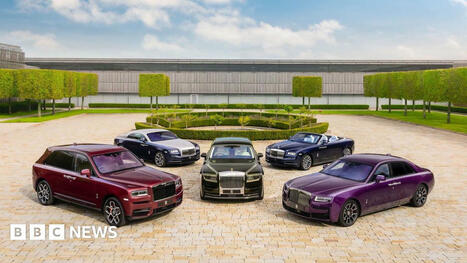

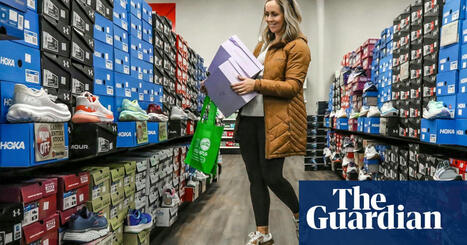

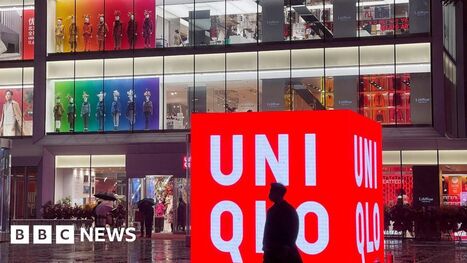




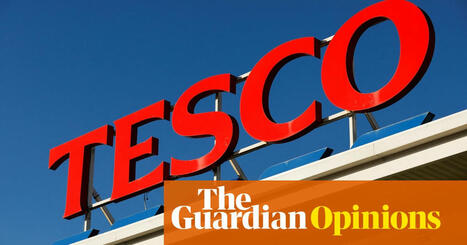
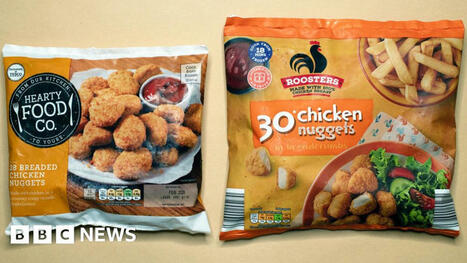
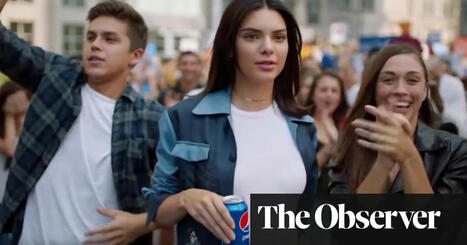
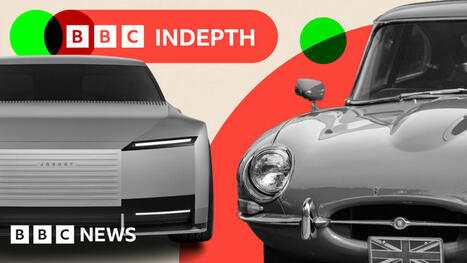


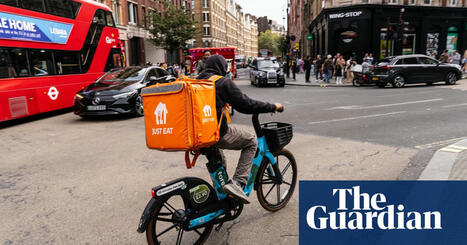
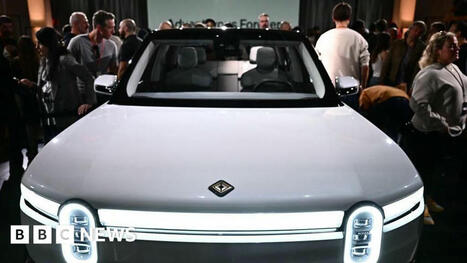











A high-end example of how technology is allowing firms to alter their production methods to customize their output and boost their profits, with the news that Rolls Royce are expanding their Goodwood factory to allow for mass customization of their top end car.